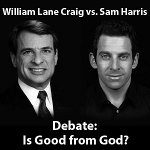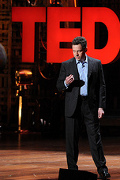










G. E. Moore
Every now and then (and I’m assuming that this is true of most people who specialise in subject areas), I feel the urge to raise a complaint or point of clarification about a common phenomenon in a field of study (in this case, meta-ethics), and to explain why I think that something should be explained differently from the way that a lot of people explain it, or why I think that a widely held assumption or belief on the part of those who work in that field isn’t quite right. However, I’m also aware that sometimes that complaint needs some context or it won’t make a great deal of sense to a lot of people.
It’s a bit like standing in the room with a chemist who is intently focused on an experiment that he is undertaking while he also follows someone else’s notes. About two hours into the experiment he throws up his hands and says “Oh for the love of Pete, why did he have to use sodium monohydrogen phosphate? It’s obvious that he should have used sodium dihydrogen phosphate!” As an observer, you wouldn’t really know what either of those chemical compounds were, or why a chemist should use one rather than the other. In order to make the comment in a way that is helpful to the observer, the chemist would need to say “Look, this is the experiement I’m conducting. Here is what I’m trying to figure out. This is the method the other guy followed. He used sodium dihydrogen phosphate, and here is the effect of sodium monohydrogen phosphate. See how that effect isn’t going to be what the experiment requires? Now look, I’m going to use sodium dihydrogen phosphate, and look, it does just what we need.”
OK, enough with the analogy already. In some of the work I’m doing on meta-ethics, the moral argument for theism and divine command ethics, I’ve frequently encountered a characterisation of divine commands – one even accepted by some who advocate a divine command theory – which I think is unnecessary and unhelpful, but in order to say why I think it is so I need to first explain the subject matter that is the context of this characterisation. That subject matter is the concept of ethical naturalism.
Read More
 In Episode 41, I address a common objection to divine command ethics: Does the fact that non-believers can still know moral truths and live moral lives somehow show that morality is not in any way grounded in God’s will or commands? Here I survey some crude versions of this argument and then offer some comments on a more recent presentation of the objection by Wes Morriston.
In Episode 41, I address a common objection to divine command ethics: Does the fact that non-believers can still know moral truths and live moral lives somehow show that morality is not in any way grounded in God’s will or commands? Here I survey some crude versions of this argument and then offer some comments on a more recent presentation of the objection by Wes Morriston.
 We’ve reached a milestone – 40 Episodes!
We’ve reached a milestone – 40 Episodes!
 NOTE: In this episode I call it episode 40. It’s not. It’s episode 39.
NOTE: In this episode I call it episode 40. It’s not. It’s episode 39.

